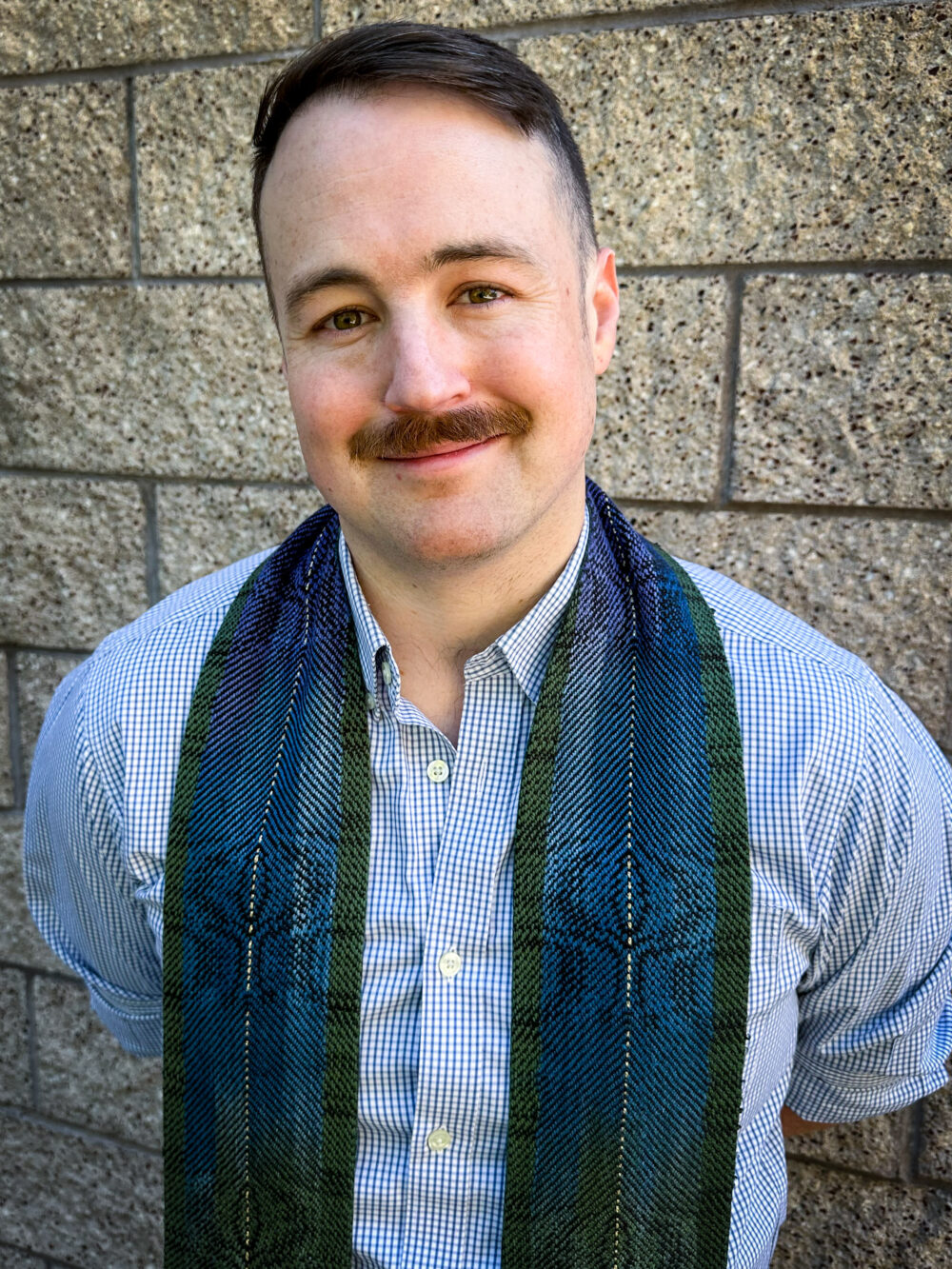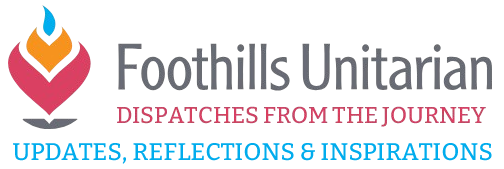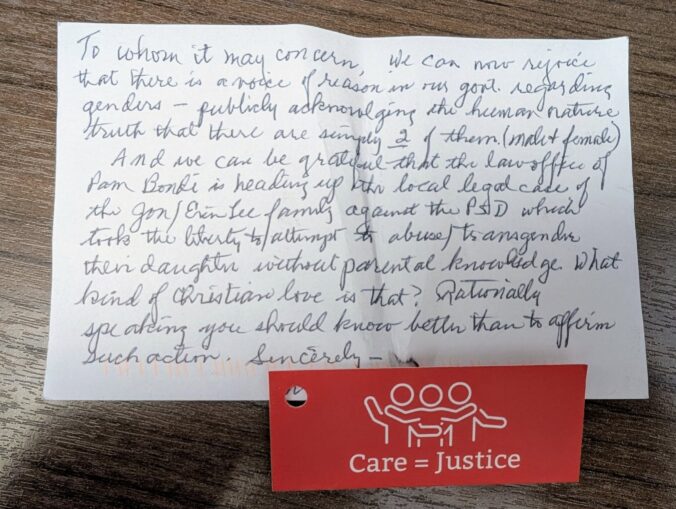Having a public ministry means that sometimes, letters of hate arrive in our inboxes and mailboxes. It’s not the first time, and it won’t be the last. We could ignore them, but sometimes, they deserve a response—not to argue, but to name a deeper truth.
Such was the case this week, on February 13th, we received a letter filled with transphobic rhetoric, misusing the language of faith to justify harm.
Words are never just words—they land in our bodies, shaping our emotions and our sense of safety. Like stones tossed into water, they create ripples that spread far beyond their initial impact.
The old saying tells us that sticks and stones may break bones, but words will never hurt us—but we know better. Words shape our realities, reinforce harm or healing, and define the space in which we feel free or afraid. When words are used to diminish, dismiss, or erase, they do more than sting—they wound. And so, instead of just holding it in, we chose to respond. Not to the letter writer directly, since they left no return address, but for ourselves, for our community, and for all who need to hear a different message. We shared our response, a love letter, on social media, ensuring that the legacy of this letter was not hate, but love.
Viewed 16,721 times and counting, our words reached far beyond the harm, reminding thousands that love is always louder.
Our Response
Dear Letter Writer
You didn’t leave a return address but if you did, this is what I would say.
There is a love wider than fear, deeper than control, queerer than we were ever taught to expect. A love that delights in people becoming more themselves, not less. A love that whispers to every trans and nonbinary kid: You are real. You are holy. You are enough.
And while many UUs aren’t Christian, I can still answer the question you pose: What kind of Christian love affirms trans kids? The kind that actually listens to Jesus. The kind that knows fear isn’t faith. The kind that understands love was never meant to be a cage—it was meant to set us free. And here’s the truth:
A child discovering who they are is not a tragedy.
A child being safe enough to tell the truth is not a threat.A child being met with love instead of shame is not abuse. But denying them that love? That is a tragedy. That is a threat to their dignity. That is abuse. So here’s my street-corner, megaphone sermon:
Life is vast. Love is vaster. And if your faith has to erase someone to feel safe, it’s not faith—it’s fear. But good news, my dear letter writing friend: There’s a better way. It’s big and bright and free. And whether you believe it or not, you are already held in that love. May you know it someday. May you let it in. May you freakin’ sparkle.
-Rev. Sean Neil-Barron
Choosing What We Hold
The world throws many things at us—anger, fear, bigotry. We do not always get to choose what arrives at our doorstep, but we do get to choose what we do with it. Hate, if left unprocessed, lingers. It festers. But we are not powerless. We can move it through. We can shift the weight. We can transform it.
Psychologists Emily and Amelia Nagoski remind us: emotions have a beginning, a middle, and an end. If we don’t complete the cycle, they remain unfinished inside us. Completing the cycle means deliberately metabolizing what we take in.
So how do we metabolize harm without letting it consume us?
- Move your body → Shake off the tension, go for a run, dance out the stress.
- Deep breathing / prayer → Calm your nervous system, reconnect with spirit.
- Crying, laughter, creativity → Let the emotion complete its cycle.
- Action → Write a letter, call your representatives, gather with your community. Turn the emotional energy into something constructive.
For us, writing this response was part of that cycle. We didn’t want the legacy of this letter to just be its bigotry. We wanted to transform it into something more—more love, more clarity, more courage.
So, what are your practices for metabolizing harm? What helps you process the heaviness so that it does not stay lodged inside you? This is your invitation: find a way. Dance, cry, breathe, act. Choose to make love, not hate, the lasting imprint. And when the world comes at you with harm, meet it with something greater

Rev. Sean is Foothills Acting Senior Minister while Rev. Gretchen is on Sabbatical.
Responsible for Worship, Justice Ministries, Faith Formation Strategies and sits on Foothills Executive Leadership Team with Director of Finances and Operations Katie Watkins.
Sean was born on Treaty 7 land in Calgary, Alberta, Canada, and comes to Foothills after four years in New England where he completed seminary at Harvard Divinity School where he studied alongside future imams, rabbis, justice activists, and other Unitarian Universalists. Sean is a self-proclaimed nerd — particularly about history, current politics, science, and Star Wars. Outside of ministry you will find Sean hiking or cooking up a storm with his partner Charles, watching his son’s basketball games, all under the watchful eye of their dog Dollie.

